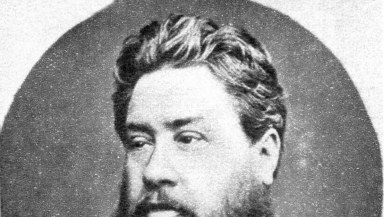The famed, fiery Baptist pastor Charles Spurgeon was a celebrity pastor of his era – and continues to inspire today – but one tragic megachurch event nearly ended his ministry completely.
Converted at age 15, Charles Haddon Spurgeon was rapidly catapulted into ministry as he discovered a special gift for preaching. The 'Prince of Preachers', gained a reputation for his prophetic energy, poetic voice and sometimes provocative irreverence – and soon caught a vast following.

He began his ministry career at age 19 at London's New Park Street Chapel, but the overflowing crowds he attracted meant his church was soon too small – even though it could seat 1200 people.
He upgraded to a larger building and then another, but outgrew both. He then leased the Surrey Gardens Music Hall in London's Royal Surrey Gardens, a venue that held 10-12,000 people. As Christianity.com explains, it was a controversial move since some saw the venue as too worldly – a public amusement hall that resembled more a circus than a church.
Passionate to preach and reach the masses, Spurgeon went ahead – though he would come to deeply regret it after the Sunday of October 19, 1856. As Spurgeon biographer Lewis Drummond noted, the pastor had an eerie premonition the night before, and had said: 'I felt over-weighted with a sense of responsibility, and filled with a mysterious premonition of some great trial shortly to befall me.'
On Sunday night the hall was filled, with another 10,000 eager to hear him crowding outside. A few hymns into the service, cries emerged from the congregation: 'Fire! Fire! Fire! The galleries are giving way! The place is falling! The place is falling!'
Suddenly the crowd was in a mad, violent panic. As one witness described: 'The cries and shrieks at this period were truly terrific, to which was added the already pent-up excitement of those who had not been able to make their exit. They pressed on, treading furiously over the dead and dying, tearing frantically at each other. Hundreds had their clothes torn from their backs in their endeavours to escape; masses of men and women were driven down and trodden over heedless of their cries and lamentations.'
There had been no fire, but Spurgeon's attempt to keep the peace couldn't hold back the chaos. It was a tragic tumult that saw seven killed and 28 seriously injured and taken to hospital. Wracked with guilt, Spurgeon was thrown into a deep depression.
As he wrote: 'I refused to be comforted; tears were my meat by day, and dreams my terror by night. I felt as I had never felt before. "My thoughts were all a case of knives," cutting my heart in pieces, until a kind of stupor of grief ministered a mournful medicine to me... "Broke in pieces all asunder," my thoughts which had been to me a cup of delights, were like pieces of broken glass, the piercing and cutting miseries of my pilgrimage.'
His many critics didn't hold back either. The Daily Telegraph wrote on October 20: 'when the mangled corpses had been carried away from the unhallowed and disgraceful scene – when husbands were seeking their wives, and children their mothers in extreme agony and despair – the chink of the money as it fell into the collection-boxes grated harshly, miserably on the ears of those who, we sincerely hope, have by this time conceived for Mr Spurgeon and his rantings the profoundest contempt.'
But in two weeks Spurgeon had recovered enough to preach again, and his crowds continued to expand.
In his final sermon at the end of his career, Spurgeon declared that Christ 'is always to be found in the thickest part of the battle. When the wind blows cold he always takes the bleak side of the hill.'
However he came to terms with the tragedy at Surrey Gardensl, it can't be said that Spurgeon never knew grief. Most painfully of all, he had to live with a pain borne of his own popularity.













